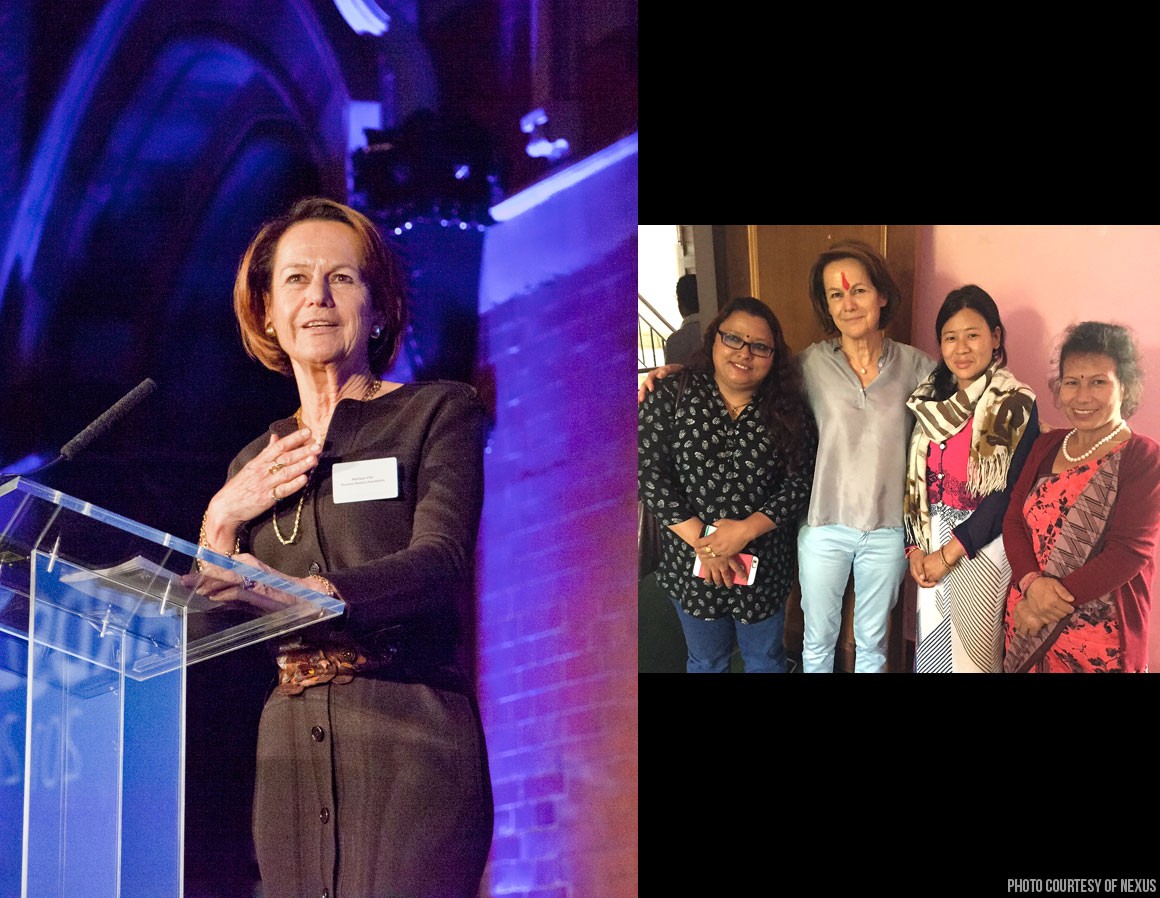By Melissa Jane Kronfeld & Megan Legband
Monique Villa, Chief Executive Officer of the Thomson Reuters Foundation, has a unique platform to effect change and she has made good use of her position as the head of one the most prominent charitable foundations in the world. Born in Paris, Monique now lives in London, where she directs the Thomson Reuters Foundation with a visionary eye and a practical perspective on social impact.
Since she joined the Foundation in 2008, Monique has been leveraging the skills and expertise of the Thomson Reuters media corporation to pursue justice for all human beings through media and law. In 2010, Monique launched TrustLaw, an award-winning branch of the Foundation, with the goal of increasing the practice of pro bono law worldwide. Monique also launched the Trust Conference to promote empowering women and fighting slavery and trafficking wherever it occurs. Monique’s example is an inspiration, and her perspective on abolition is compelling.
Check out what happened when we caught up with Monique to talk about the fight to #EndSlaveryNow!
What is one fact that every person should know about slavery?
Slaves walk among us and we don’t see them. Nobody should transform a human being into a commodity.
How did you first learn about modern slavery & what did you decide to do about it?
I thought slavery was buried in history, and discovered it was not some ten years ago through books I read and people I met. Somaly Mam was one of them – a beautiful Cambodian who was sold into sex slavery by her father at the age of eight. Her story was multifaceted – and perhaps sometimes a bit removed from reality – but she has certainly been an eye opener for me. So I decided to create Trust Women soon after meeting her and reading her book, to take action against modern slavery. It was the start of a long journey.
What is the most critical obstacle preventing us from having a slave free world?
People’s awareness – which is still lacking – and the fact that most governments don’t pay enough attention to the issue, so the laws when they exist are rarely implemented. As long as slavers can act with total impunity, they will go on because it is an incredibly lucrative business. A business worth $150 billion a year. You can resell a person or a child many, many times. Corporations have just started to be conscious that they have forced labour down their supply chains and become more and more aware that they need to take action if they don’t want their brand to be damaged. No corporation can say: “I’m slave free”.
What is the most important lesson you have learned while fighting for freedom?
My big lesson is that it is just not enough to rescue people from slavery. A necessary first step, but not enough: when they come back from hell, victims will have months or even years of more hell ahead of them before they can build trust in other human beings and stop deprecating their own image. Access to good psychologists and psychiatrists is essential, but it is very expensive for survivors. We have to facilitate it.
The second lesson is that we cannot fight a very well organized crime in a totally disorganized manner. The mafias around human trafficking are very powerful; our means to investigate them and prosecute them are weak to say the least.
Why do you believe the Millennial generation will be the one that can end slavery?
The Millennial generation will maybe be the one that can end slavery because the previous generation has started to shed light on the issue. If we make millennials embrace the fight, things can move fast.
What does a slave free world look like to you?
It’s a world in which I can eat any shrimp, I can wear any cloth without feeling that I may be an accomplice to the crime of slavery; a world where I am sure that no children are exploited in any manner.
What is one thing every reader can start doing right now to help end slavery?
They can open their eyes and be conscious that slavery can happen anywhere. At your nail salon, when you buy fish or a t-shirt, or when you tip a maid in a hotel room. In any of these instances, you may have seen a slave and not known it. Speak to them, and if needed, help them.
Profiles In Abolition is an in-depth look at the influencers, innovators & thought leaders in the modern anti-slavery movement. An accompaniment to Millennial Magazine’s ongoing 10-part series exposing modern slavery – a project of the Nexus Global Youth Summit (catch up with Part One, Part Two, Part Three & Part Four) – Profiles In Abolition will examine a diverse & inspiring array of advocates whose critical voice must be heard.
Want to learn more from the world’s leading luminaries in the fight to #EndSlaveryNow? Sign up for the Nexus Anti-Slavery Speaker Series, a weekly conference call with the men and women on the front lines of the modern abolition movement! This call is open to the public and everyone is welcome to listen in! Click here to register for free. Then learn more about modern slavery by following Nexus on Twitter, Instagram & Millennial Magazine!

